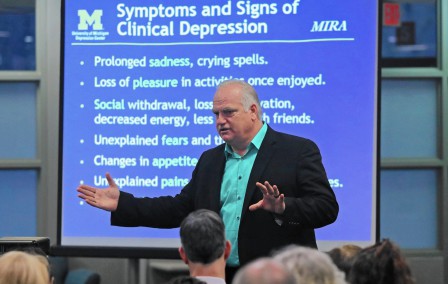

KEYNOTES
Survive and Thrive: A Quarterback’s Take on Managing Change In a Hectic World
When change is apparent in or out of the workplace, mental fitness is a key component for managing it. It gives us the ability to care for ourselves and make sure we’re physically able to navigate the turbulent waters ahead.
We are all expected to be on the top of our game and take on the challenges that life presents to us. But managing them physically and psychologically can add another layer of stress. We are all too familiar with the stresses in life and the damage it can do to the biology and the psyche of a person. Resilience, solution-oriented thinking, positive attitude and decision-making with a strong dose of purpose is the foundation for mental fitness. That doesn't mean that things won't go wrong, they often do in life, but just surviving is not enough, it is also about thriving.
In Eric’s engaging session, attendees will learn how to:
- Understand the 5 components of stress control
Predictability, controllability, trust, relationships, and purpose
-Navigate the pillars of mental fitness
Recognizing choices, self-esteem, boundaries, and vulnerability
- Be aware of oneself and observation of others
Utilizing the tools of mental fitness, we can live and work with the motto “Survive and Thrive”.
Suicide Prevention and Destructive Behavior
There are different ways of thinking and acting in relation to suicidal behavior. Some who display the classic symptoms of suicidal behavior build up to their act over time or choose methods that require careful planning. Some act out of an immediate crisis, with little or no forethought involved.
In both cases, the decision is made for painful, complex reasons. Mental illness, namely depression, can take hold of one's thought processes and lead to a pattern of destructive thoughts and behavior. An understanding of mental illnesses and their symptoms can be used for intervention.
Eric Hipple centers his program around suicide prevention. With his own experiences with mental illness following his NFL career and with suicide following the death of his son, Eric uses his knowledge to teach awareness and prevention.
*Information presented has been obtained via The University of Michigan studies and training in QPR and ASIST.



